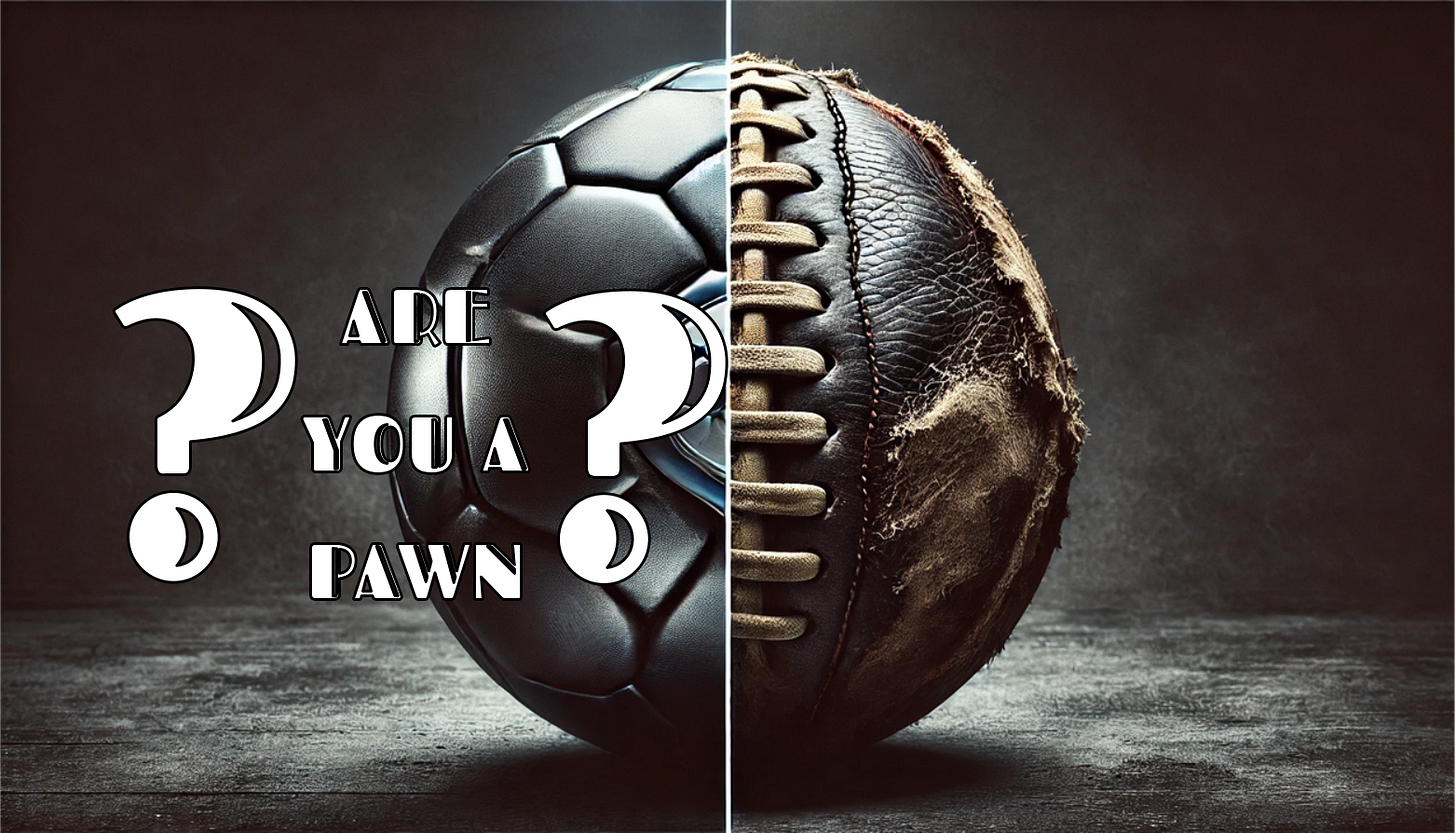Once upon a time, football, skateboarding, BMX, and other sports belonged to the streets. They were the great equalizers—accessible, communal, and deeply rooted in working-class culture. They were the embodiment of a simple truth: you didn’t need wealth to have fun, compete, or be part of something bigger than yourself. But that world is gone. Today, these very same sports have been repackaged, commodified, and sold back to us at premium prices. What was once a pastime of the poor has been gentrified into a billion-dollar industry, carefully engineered to extract every last penny from the very people who once built these cultures.
The Rise of Corporate Sports Feudalism
The transformation of football (or soccer, if you’re in the U.S.) is the most obvious case study. Originally a game played in muddy factory lots and industrial neighborhoods, football was a working-class sanctuary. Local teams were built by dock workers, miners, and railway employees. Stadiums were filled with people who saw their team as an extension of their own community, a beacon of local pride. But that has all changed.
With the advent of television broadcasting deals, billionaire club ownership, and global corporate sponsorships, football has transformed into a hyper-commercialized spectacle. Ticket prices have soared, club merchandise has become a multi-billion-dollar industry, and teams are now global brands rather than local institutions. The fans? They’re no longer supporters but customers. What was once an organic, local culture has been hijacked by financial interests that see sport not as a community activity but as a never-ending revenue stream.
It’s not just football. The same has happened with skateboarding, BMX, and even basketball. Look at the NBA—what started as a league for urban, streetball-rooted talent has morphed into an exclusive club where courtside seats cost thousands of dollars and sneaker collaborations reach absurd price tags. Skateboarding, once an act of defiance, has been turned into a marketable trend, with corporations dictating its aesthetics and pricing out the very communities that created it.
The Illusion of Belonging: A Psychological Trap
The true genius of modern sports capitalism is not just that it makes billions—it’s that it convinces people to voluntarily participate in their own financial exploitation. Fans are manipulated into believing that their devotion is a badge of honor. They pour their savings into season tickets, exclusive merchandise, and away-game flights as if it’s a sacred duty. They argue about players' salaries as if they personally benefit from their team’s financial success. They wear overpriced jerseys and camp outside team stores, eagerly handing over their hard-earned money just to feel closer to a club that no longer even acknowledges their existence.
This is not community. This is not belonging. This is corporate feudalism. The fans are the modern-day peasants, blindly financing the wealth of the oligarchs who own their clubs.
The Cost of Passion: When Fandom Becomes a Financial Burden
Many hardcore fans spend thousands every year following their teams. Match tickets, travel, merchandise, subscriptions to premium sports channels—it all adds up. Meanwhile, the players and owners accumulate wealth that the average supporter could never dream of. Let’s be clear: the footballer earning $500,000 per week does not care that you skipped rent to attend a match. The billionaire club owner in Qatar does not care that you went into credit card debt to buy a season ticket. The Nike CEO does not care that you lined up at 4 AM for overpriced sneakers.
These industries thrive on manufactured scarcity and artificial status symbols. Limited edition jerseys, exclusive VIP tickets, NFT-based sports memorabilia—these are all designed to squeeze out maximum revenue while keeping fans addicted to the illusion of exclusivity.
Parallels in Politics and Capitalism: The Gentrification of Democracy
The dynamics seen in the gentrification of sports mirror those in politics and vulture capitalism. Just as local communities are priced out of their own teams, marginalized groups are often pushed out of their own neighborhoods due to aggressive corporate expansion. Consider St. Paul’s in Bristol, where riots erupted in response to systemic injustice and the displacement of communities due to gentrification. These same patterns appear when multinational corporations forcefully remove small, locally owned businesses under the guise of “progress.”
Keep reading with a 7-day free trial
Subscribe to Sentin L’s Substack to keep reading this post and get 7 days of free access to the full post archives.




